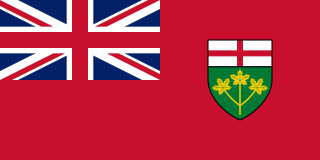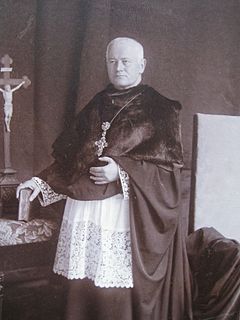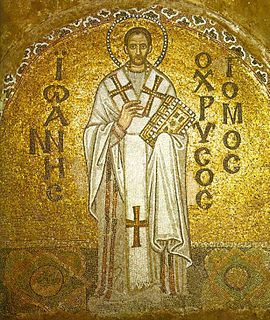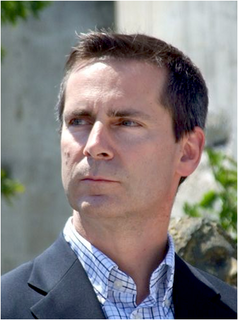
The Ontario general election of 2003 was held on October 2, 2003, to elect the 103 members of the 38th Legislative Assembly of the Province of Ontario, Canada.
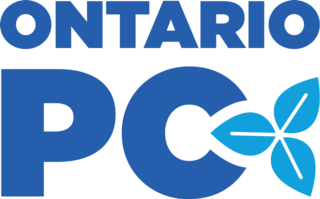
The Progressive Conservative Party of Ontario, often shortened to Ontario PC Party, PC, or Conservatives, is a centre-right political party in Ontario, Canada. The party has been led by Premier Doug Ford since March 10, 2018.
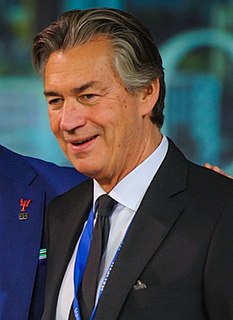
The Manitoba general election of September 21, 1999 was held to elect Members of the Legislative Assembly of the Province of Manitoba, Canada.
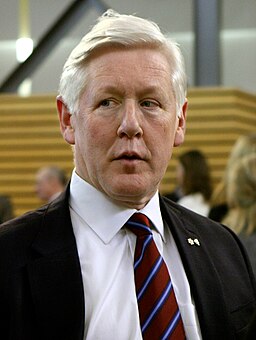
The Ontario general election of 1990 was held on September 6, 1990, to elect members of the 35th Legislative Assembly of the province of Ontario, Canada.

The Ontario general election of 1987 was held on September 10, 1987, to elect members of the 34th Legislative Assembly of the Province of Ontario, Canada.
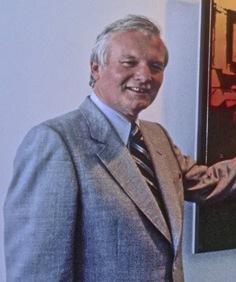
The Ontario general election of 1981 was held on March 19, 1981, to elect members of the 32nd Legislative Assembly of the Province of Ontario, Canada.

The Manitoba general election of March 18, 1986 was held to elect Members of the Legislative Assembly of the Province of Manitoba, Canada. It was won by the New Democratic Party, which took 30 seats out of 57. The Progressive Conservative Party won 26 seats and formed the official opposition. The Manitoba Liberal Party, which had not been represented in the previous legislature, won one seat.

The Manitoba general election of November 17, 1981 was held to elect Members of the Legislative Assembly of the Province of Manitoba, Canada. It was won by the opposition New Democratic Party, which took 34 of 57 seats. The governing Progressive Conservative Party took the remaining 23, while the Manitoba Liberal Party was shut out from the legislature for the only time in its history. The newly formed Progressive Party failed to win any seats.

The Manitoba general election of October 11, 1977 was held to elect Members of the Legislative Assembly of the Province of Manitoba, Canada. It was won by the Progressive Conservative Party, which took 33 seats out of 57. The governing New Democratic Party fell to 23 seats, while the Liberal Party won only one seat.

The Manitoba General Election of June 28, 1973 was held to elect Members of the Legislative Assembly of the Province of Manitoba, Canada. It was won by the social-democratic New Democratic Party, which took 31 of 57 seats to win government in its own right for the first time. The Progressive Conservative Party finished second with 21, while the Manitoba Liberal Party took the remaining five.

The Manitoba General Election of June 25, 1969 was held to elect Members of the Legislative Assembly (MLAs) of the Canadian province of Manitoba. It was a watershed moment in the province's political history. The social-democratic New Democratic Party emerged for the first time as the largest party in the legislature, winning 28 out of 57 seats. The governing Progressive Conservative Party fell to 22, and the once-dominant Liberal Party fell to an historical low of five. The Social Credit Party won one seat, and there was also one Independent elected.
Gerry Phillips is a former politician in Ontario, Canada. He was a Liberal member of the Legislative Assembly of Ontario who represented the eastern Toronto riding of Scarborough—Agincourt from 1987 to 2011. He served as a cabinet minister in the governments of David Peterson and Dalton McGuinty.
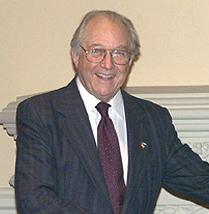
The Manitoba general election held on June 23, 1966, was held to elect Members of the Legislative Assembly of the Province of Manitoba, Canada. It resulted in a third consecutive majority win for the Progressive Conservative Party led by Dufferin Roblin. Roblin's Tories won 31 seats, against 14 for the Liberal Party, 11 for the New Democratic Party and one for Social Credit.
The Province of Ontario is governed by a unicameral legislature, the Legislative Assembly of Ontario, which operates in the Westminster system of government. The political party that wins the largest number of seats in the legislature normally forms the government, and the party's leader becomes premier of the province, i.e., the head of the government. Ontario's primary political parties are the centre-right Progressive Conservative Party of Ontario (PC), the centre-left to left Ontario New Democratic Party (NDP), the centre-left Ontario Liberal Party and the left-wing Green Party of Ontario.
The Speaker of the Legislative Assembly of Ontario is the presiding officer of the Legislative Assembly of Ontario. Since 1990, the position has been elected by MPPs using a secret ballot. Previously, the Speaker had been appointed directly by the Premier of Ontario after consultation with the Leader of the Opposition and the leader of the third-largest party, and then ratified by the legislature. David Warner was the first Speaker to be elected by his or her peers.
A star candidate(fr:candidat vedette) refers to a high-profile individual who has been recruited as a candidate by a political party. Star candidates have usually excelled in fields outside politics such as academia, business, the media, journalism and/or sports. They are also either retired high-profile politicians who have been lured back into politics or a big-city mayor or provincial premier/state governor who has been convinced to enter federal politics, or former politicians that have been lured to run at another level to attain high-profile positions at that level.
York East was a provincial electoral district in Ontario, Canada. It was formed in 1867, the same year as the beginning of the country and it elected members up until 1999 when it was dissolved. Initially it covered a large swath of territory stretching from Lake Ontario north to Richmond Hill. It was formed based on the eastern part of the county of York. Over time as the population increased, the territory was reduced. By the late 1950s it represented only a portion of the borough of East York, a small municipality on the edge of Toronto. In 1999 it was abolished and its remaining territory was distributed between Beaches—East York and Don Valley West ridings.

